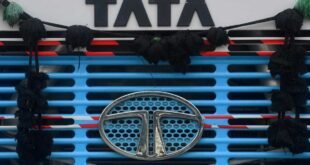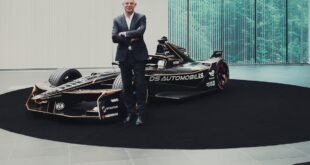The Struggle for a Sustainable Auto Market
Building a sustainable and consumer-friendly auto market is a complex challenge, especially in the face of resistance from established players. According to RJ Scaringe, CEO of Rivian, one group has been particularly obstructive: traditional automakers. These legacy companies have long dominated the industry with internal-combustion vehicles, and their reluctance to embrace electric vehicles (EVs) has created significant hurdles for startups like Rivian.
Rivian has faced numerous challenges on its path to becoming a full-scale automaker. From navigating pro-dealer laws in various states to building its own service and sales infrastructure, the company has had to overcome many obstacles. Now, as it prepares to launch its R2 model, the future of the American EV market appears increasingly uncertain.
Legacy Automakers as Adversaries
Scaringe argues that the biggest adversaries in the EV space are the traditional automakers—companies like Ford, General Motors, and Toyota. These companies have actively fought against Rivian’s direct-to-consumer sales model and have lobbied to roll back emissions regulations. Their resistance stems from a desire to maintain their dominance in the market, where they can continue selling gas-powered vehicles without the burden of regulation or competition from new entrants.
Scaringe claims that these legacy automakers do not actually want to sell EVs. Instead, he suggests, they prefer to keep the market focused on internal-combustion vehicles, which remain profitable and familiar to consumers. He points out that the EV models offered by these companies are often not compelling enough to compete effectively, especially in a market where tariffs and the disappearance of tax credits are driving up prices.
A Changing Landscape
The recent changes in policy, such as the rollback of EV tax credits and the imposition of tariffs, could be detrimental to both the U.S. auto industry and the established automakers. However, Scaringe sees an opportunity for Rivian. With other automakers pulling back on EV investments, Rivian may have more time to establish itself as a leader in the space.
The R2 model, set to launch in the first half of 2026, targets a starting price of $45,000 for the rear-wheel-drive version. Unlike many competing EVs, the R2 will be built in the U.S., which could give it a competitive edge. If the R2 offers the same high-quality software and interior as the R1T and R1S, it could become a hit even without the support of tax credits.
A Market Without Choice
Scaringe highlights a growing concern about the lack of choice in the EV market. While there are over 300 options in the internal-combustion vehicle market, EV buyers still have limited choices. He argues that the dominance of Tesla’s Model 3 and Model Y under $50,000 reflects a market that lacks diversity rather than one that is healthy.
Scaringe believes that the R2 is well-positioned to fill this gap. By offering a compelling alternative to Tesla, the R2 could attract a broader range of buyers who are looking for more options in the EV space.
The Resistance from Traditional Automakers
The question remains: Do traditional automakers truly want the EV transition to fail? Scaringe’s claim is not without merit. Many of these companies have shown a clear preference for gas-powered vehicles, often delaying or scaling back their EV initiatives. For example, Stellantis has delayed the rollout of its electric pickup truck to focus on its V-8 engine, while Mercedes has pivoted back toward internal-combustion and hybrid options.
While some companies, like GM, have taken more aggressive steps toward electrification, others have been slower to adapt. Ford, for instance, has made the right public statements but has not yet demonstrated the product innovation needed to compete effectively. Meanwhile, the Volkswagen Group has invested heavily in EV technology but still relies heavily on its gas-powered models.
A Shift in the Industry
The automotive industry is undergoing a significant transformation, driven by regulatory changes, the rise of Chinese automakers, and the shift toward software-defined vehicles. These challenges make the transition to EVs even more complex. At the same time, traditional automakers are struggling to balance short-term profits with long-term investments in EV technology.
For companies like BMW and Chevrolet, the allure of selling vehicles based on powerful engines is hard to resist. However, the reality is that EVs are becoming increasingly attractive due to their smoother, quieter, and simpler driving experience. Moreover, regions like Europe and China are moving forward with EV adoption, regardless of what traditional automakers think.
The Road Ahead
Despite the challenges, the EV market is evolving, and startups like Rivian are playing a crucial role in shaping its future. As the industry continues to change, the actions of traditional automakers will be closely watched. Whether they ultimately embrace the transition or resist it will determine their place in the new era of transportation.
 Info Malang Raya Its All About World News
Info Malang Raya Its All About World News



